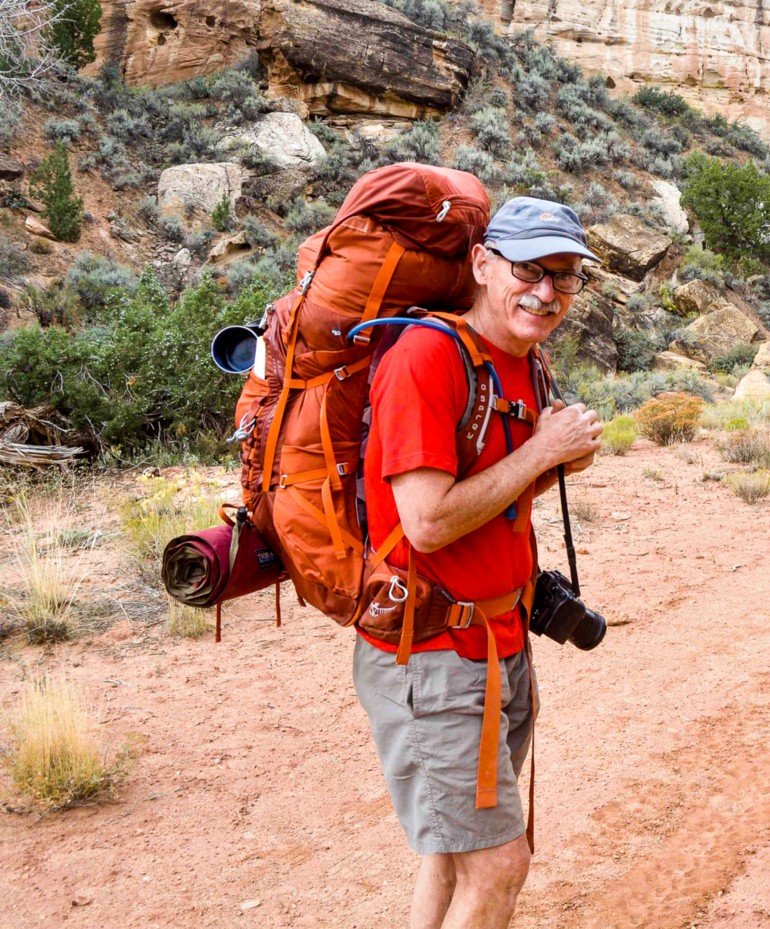The Book at the End of the Trail
Olympic National Park, 1972
As the film based on Cheryl Strayed’s bestseller, Wild, opens, I’m still trying to understand my response to the book. As I reached the last few pages, I began to sob uncontrollably. The intensity of my reaction astonished my wife. I was just as startled. So what got me?
My tears came not when Strayed finished hiking her stretch of the Pacific Crest Trail, not when she eased out of her monster backpack and onto a white bench — where the Bridge of the Gods spans the Columbia River — to celebrate her triumph as “Queen of the PCT” with an ice cream cone.
No, my emotional wave hit two pages later, when in the book’s final paragraphs Strayed returned to that bench 14 years later with her husband and two children. Her second visit to the bench ignited in her an emotional spark of connection to her earlier self. This moment lit the fuse that led to her book. She went home, closed her office door, pulled out her journals, and began to write.
Cheryl Strayed sent her book out into the world, and I responded — I cried — as both writer and reader. As a fellow writer, I loved watching how she wove the trail, the living, the wild, the work into a skillfully-crafted story about what it means to be human, to be at home on the earth, to articulate the biggest questions and acknowledge that the answers always elude us. As a reader, I was swept along by Strayed’s intimacy and honesty.
Broken when she begins her hike north from the Mojave Desert, Cheryl Strayed sets out to come to terms not just with the trail but with a tough childhood, the early death of her mother, her family exploding, a divorce. She leaves the trail carrying those same wounds — but with new strength to live with them. At both moments on the bench, separated by the years of maturing that made the book possible, she knew that hiking 1100 miles had granted her something crucial “without yet being able to say precisely what it was.”
I haven’t hiked a thousand miles in one sweep. But I’ve hiked those miles incrementally. Colorado Outward Bound courses and backcountry patrol in Olympic National Park in my teens and twenties — a pilgrim to the wild, looking for myself. Long jaunts in the decades since, looking for telling details and elegant images as a writer and photographer on the loose in the Desert West.
The miles add up.
Like Cheryl Strayed, many of my backcountry miles came before I married and had children. Being in the wild created a reservoir of strength and certainty to draw on when the challenges of parenting and the wrongs of life brought me to my knees.
We forge ourselves in the old-fashioned refuge of solitude, and, then, we carry that infusion of energy with us as we mature. As men and women, lovers, parents, and writers, we fuel ourselves with that wildness — that age-old source of clean, sustainable power.
And so when Strayed came back — when her settled and connected self, embedded in family, reconnected with a critical moment in her youthful self’s life — she completed a circle. She revisited the journey that had moved her along the road toward healthy adulthood. As a writer, she could reconnect with that anchorless twenty-something. And as a grown-up memoirist, she could tease meaning from that story of her earlier, searching self.
Different gender. Different generation. Different story. Still, she ended the book as me. I know what those days on the trail feel like. Wi-fi turns to wild-fi, and a stream of text messages comes only in riffles of birdsong and torrents of snowmelt. I had those experiences. They shaped me, as a young man.
What do you do after such intense and precious journeys? Both Cheryl Strayed and I moved forward into community, family, relationship. She preserved the redemptive clarity of her hike through years of everyday noise. And when she wrote about it, she learned what it meant to her. As she has said: “You don’t write about what happened in a memoir; you write about what happened meant.”
As a reader, I finished her book, wrung out, exhilarated, empathetic, thrilled — and sobbing without knowing why. As a writer, I searched for an explanation for those sobs. Right here. In this essay. In these words. And I think I understand now.
The force of Wild is the trail itself — the mountains, the wildness, the space, the light. The force of Wild is the masterful craft of a writer who takes us on her journey, which was my journey, too.
Wild brought me back to the power of my own experience in wild places. Wild acknowledged the transformative ripening of youth into middle age. Family and good luck fills my life now, but my solitary youth in the mountains and deserts set me up for happiness. I can’t go back, but the wild goes forward with me.
Cheryl Strayed wrote my story and cracked open my heart. Reese Witherspoon surely will trigger my sobs once more when she brings us the film of Wild. This time, I’ll know why.
Writer and photographer Stephen Trimble has published more than twenty books. He lives in Salt Lake City and Torrey, Utah. Trimble is working on a memoir — an exploration of tragedies in his mother’s life that he couldn’t write until years after she died. Like Strayed, he needed time to look back. Trimble hopes for the clear-headedness and acceptance that writing with perspective may bring. His website is www.stephentrimble.net.



